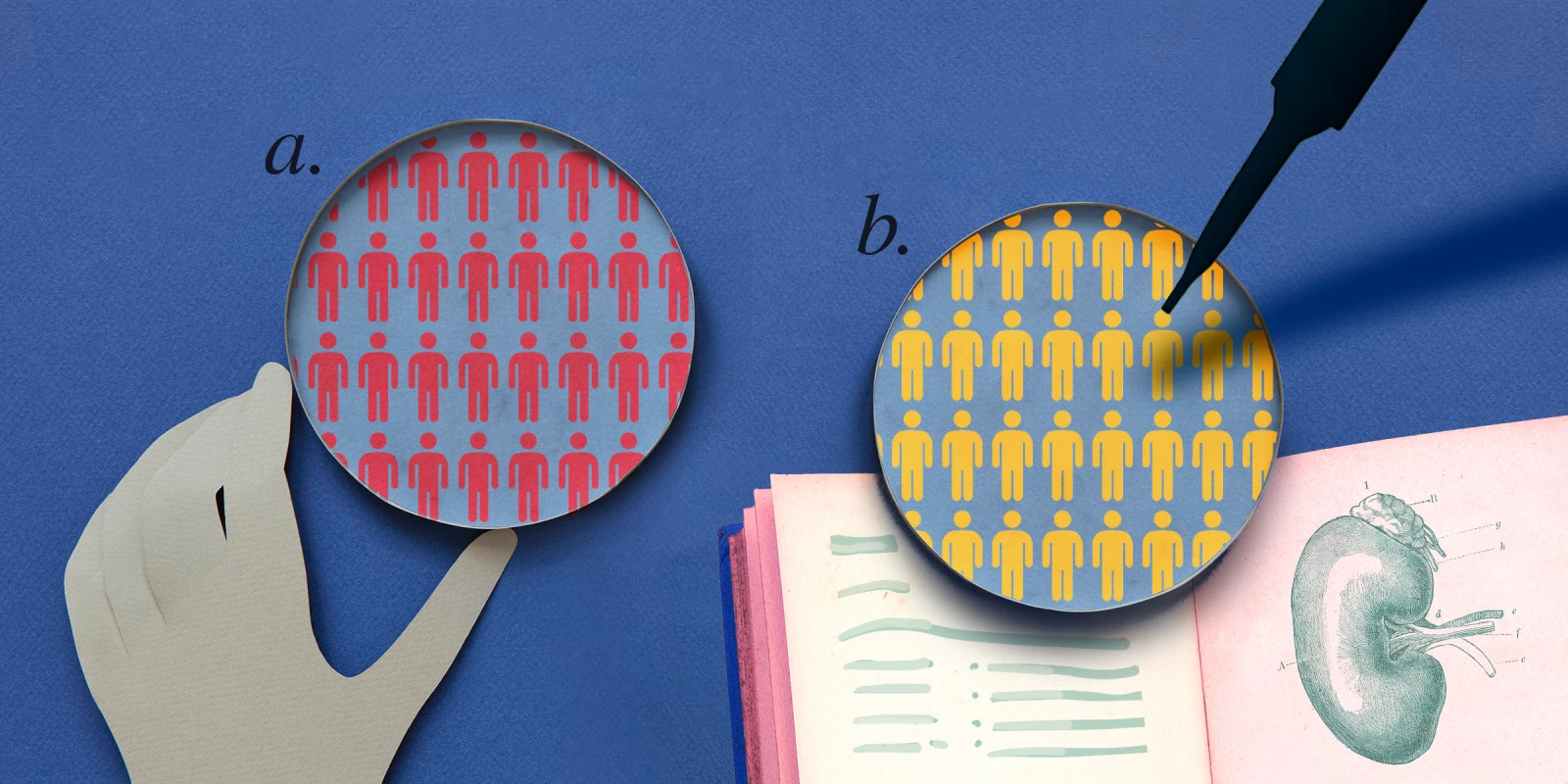Practice-changing data
The ESMO Congress 2025 presentations included multiple GU oncology advances including a panoply of practice-changing Phase III trials, especially in the arena of urothelial carcinoma (UC). The most important practice changing trial was the EV303 phase 3 trial which evaluated neoadjuvant enfortumab vedotin (EV) plus pembrolizumab in the perioperative setting for cisplatin ineligible or cisplatin-refusing muscle invasive bladder cancer (MIBC). This trial demonstrated improvement in both event-free survival (EFS) and overall survival (OS) and is considered practice changing.
Additionally, the RC48-C016 phase 3 trial demonstrated a doubling of both median progression free survival (PFS) and OS with the combination of disitamab vedotin (DV) plus toripalimab (PD1 inhibitor) for patients with advanced UC with HER2 protein expression ≥1+ by immunohistochemistry, which is observed in 70% of UC patients. This trial accrued patients only in China and results are considered practice changing in China. Another phase 3 global trial is evaluating the combination of DV plus pembrolizumab in a similar patient population.
The IMvigor011 phase 3 trial showed postoperative tumor-informed circulating tumor (ct)-DNA guided atezolizumab administration up to 1 year after surgery with or without neoadjuvant cisplatin-based chemotherapy improved both PFS and OS. However, the relevance of this result in the setting of perioperative chemo immunotherapy or EV plus pembrolizumab is unclear.
The PSMAddition phase 3 trial showed an improvement in radiographic progression free survival (rPFS) for the addition of lutetium-PSMA to an androgen receptor (AR) pathway inhibitor and androgen deprivation therapy (ADT) for metastatic castration sensitive prostate cancer (CSPC) with at least one PSMA+ lesion on PET scan. Survival improvement has not been shown yet and further follow-up is awaited.
Potentially practice-changing data
A couple of phase 3 trials evaluated PD L1 inhibitors atezolizumab or durvalumab in combination with BCG in untreated patients with high-risk non-muscle invasive bladder cancer (NMIBC). While the trial combining durvalumab with BCG was positive, the trial combining atezolizumab with BCG was not successful in showing improvement in disease-free survival (DFS). A previous trial evaluating sasanlimab, a PD1 inhibitor, with BCG showed an improvement in DFS. Regulatory reviews are awaited for both positive trials.
The CAPitello281 phase 3 trial demonstrated improvement in rPFS for the addition of capivasertib, an AKT inhibitor, to ADT plus abiraterone in PTEN-deficient metastatic CSPC. However, the improvement was modest and no survival improvement was seen currently. Further work is needed to identify a biomarker which may potentially perform better than PTEN deficiency by immunohistochemistry.
In the context of prior approval of pembrolizumab as adjuvant therapy for high-risk clear cell RCC, the RAMPART phase 3 trial compared adjuvant durvalumab versus durvalumab plus tremelimumab versus no adjuvant therapy for high-risk mostly clear cell and a minority of non-clear cell renal cell carcinoma (RCC). The trial showed an improvement in DFS with the combination immune checkpoint inhibitor approach. However, no survival improvement has been shown yet and data from the durvalumab alone arm have not been presented. The trial stopped early for reasons other than efficacy in toxicities, and the impact on clinical practice awaits further follow-up and regulatory reviews.
Practice-informing/affirming data
The DISCUS randomized phase 2 trial compared 3 versus 6 cycles of platinum-based chemotherapy followed by maintenance avelumab for advanced UC. The trial showed there was no compromise in efficacy with just 3 cycles and there were quality of life benefits. Therefore, in patients ineligible for immune checkpoint inhibitor-based combination first-line therapy who may qualify for the JAVELIN paradigm of platinum-based chemotherapy followed by avelumab maintenance, 3 cycles of platinum-based chemotherapy may be considered.
A CheckMate 274 phase 3 trial update was presented, which previously demonstrated an improvement in DFS with adjuvant nivolumab in high-risk muscle invasive urothelial carcinoma following surgery. The update confirmed the improvement in outcomes. Moreover, in a small group of patients who underwent baseline tumor-informed ctDNA assessment, only those with ctDNA-positive findings appear to benefit from adjuvant nivolumab. Although results mirror the findings from the IMvigor010 trial, these results remain exploratory, given the unplanned analysis in a small sub-group of patients.
A EMBARK phase 3 trial update was also presented, comparing ADT alone, enzalutamide alone, or the combination of enzalutamide and ADT for high-risk PSA recurrence with a doubling time of ≤9 months following local definitive therapy for CSPC. Previously, both enzalutamide alone or in combination with ADT have been approved for improvement in metastasis free survival. At ESMO, only the combination of enzalutamide and ADT improved survival while enzalutamide alone did not. These findings might have a practice impact although other patient-related factors and preferences should be considered when discussing options with patients for shared decision-making.
The phase 3 ENZARAD trial evaluated adding enzalutamide to radiation therapy and androgen deprivation therapy for locally advanced prostate cancer. It could not demonstrate an improvement in metastasis-free or OS with the addition of enzalutamide, although there appeared to be benefit in more local regionally advanced disease. These results contrast with those from STAMPEDE where the addition of abiraterone to radiation therapy plus androgen deprivation therapy improved survival. However, the ENZARAD trial may have been compromised by accrual of a larger group of lower-risk patients. Thus, these data may play a role in the selection of appropriate high-risk patients for intensification of androgen blockade in this setting and may not reflect differences between abiraterone and enzalutamide.
The LenCabo randomized phase 2 trial compared the combination of lenvatinib and everolimus versus cabozantinib for patients with advanced renal cell carcinoma progressing on prior immune checkpoint inhibitor therapy. This demonstrated the improvement in PFS and objective response for the combination, albeit with more toxicities.
Emerging agents and strategies
Several presentations supporting further development of emerging agents were presented. A small randomized phase 2 trial evaluated neoadjuvant nivolumab or nivolumab combined with visugromab, a GDF15 inhibitor, for MIBC and demonstrated potential improvement in pathologic complete remission.
Saruparib, a PARP1-specific inhibitor, plus AR pathway inhibitors preliminarily exhibited promising safety and efficacy in patients with metastatic CSPC and AR pathway inhibitor-naïve mCRPC (PETRANHA trial). EvoPAR-01, an ongoing phase 3 study, evaluates this combination in mCSPC. Pasritamig, a first-in-class bispecific T cell engager that binds CD3 and kallikrein-2, previously showed low rates of cytokine release syndrome and promising efficacy in mCRPC. Biomarker analyses of peripheral and tumor-infiltrating T cells reported at ESMO25 suggested patients with less terminal T-cell exhaustion were more likely to display a response. Previously, T-cell engagers binding STEAP1 and PSMA have also shown activity.
The KEYMAKER U-03 phase 2 trial evaluated multiple triplet combinations built on the backbone of Lenvatinib plus pembrolizumab and showed promise for the combination of lenvatinib, pembrolizumab and belzutifan in untreated patients with clear cell RCC. The ongoing phase 3 trial LITESPARK-012 is evaluating this combination. The OPTIC-RCC study evaluated first-line therapy based on RNA gene expression signatures and reported the combination of cabozantinib and nivolumab exhibited a high activity with the angiogenic gene expression signature. Further data are awaited for the combination of ipilimumab plus nivolumab using an immune gene expression signature. Currently, molecular predictive biomarkers to select first-line therapy for clear cell RCC are not in the clinic and further data are awaited.
Conclusion
The ESMO Congress 2025 was successful in providing advances in the field of GU malignancies. Ultimately, robust advances will come with better knowledge of tumor biology and discovery of biomarkers to enable precision medicine. Accrual to clinical trials should be considered a preferred standard of care to expedite advances.
Guru P. Sonpavde, MD is the Director of Genitourinary (GU) Oncology and Phase I Research as well as the Christopher K. Glanz Chair for Bladder Cancer Research at the AdventHealth Cancer Institute, and Professor of Medicine at the University of Central Florida, Orlando, Florida, USA. Previously, he was Bladder Cancer Director at the Dana-Farber Cancer Institute and Associate Professor of Medicine at Harvard Medical School from 2017-2022, GU Oncology Director and Associate Professor of Medicine at the University of Alabama at Birmingham from 2012 to 2017 and practiced from 2004 to 2012 at Texas Oncology, a US Oncology affiliate. His focus is drug development (including early development Phase I clinical trials and later Phase II/III trials) evaluating novel and emerging classes of treatments across solid tumors and clinical/translational research to cure GU cancers with a focus on bladder cancer.
Dr. Sonpavde has received grants from EMD Serono, Jazz Therapeutics, Bayer, Sumitomo Pharma, Blue Earth Diagnostics, and Exelixis. He has received consulting fees or honorarium from EMD Serono, BMS, Merck, Seattle Genetics, Astellas, Janssen, Bicycle Therapeutics, Pfizer, Gilead, Scholar Rock, Eli Lilly, Loxo Oncology, Vial, Aktis, Daiichi-Sankyo, Syapse, Merck, Servier, Syncorp, and Ellipses. He has also received support for travel from BMS and Astellas. He has received payment for writings from Uptodate, Practice Update, Onviv, DAVA Oncology, and PrecisCa. He has also received payment for lectures from Seagen, Gilead, Natera, Exelixis, Janssen, Astellas, Bayer, Aveo, Pfizer, and Merck. He has also received support for CME-certified speaking from Research to Practice, PeerView Institute, Ideology Health, and IBCU/Grand Rounds in Urology.
Collage by April Brust / Getty Images






